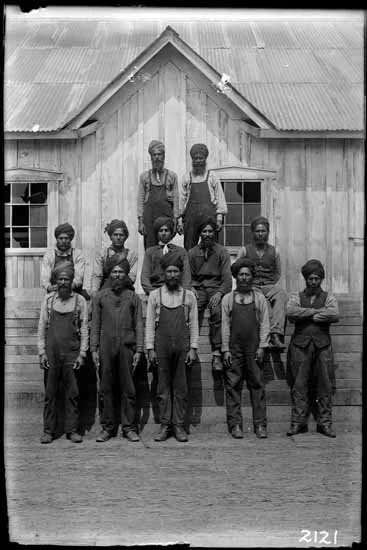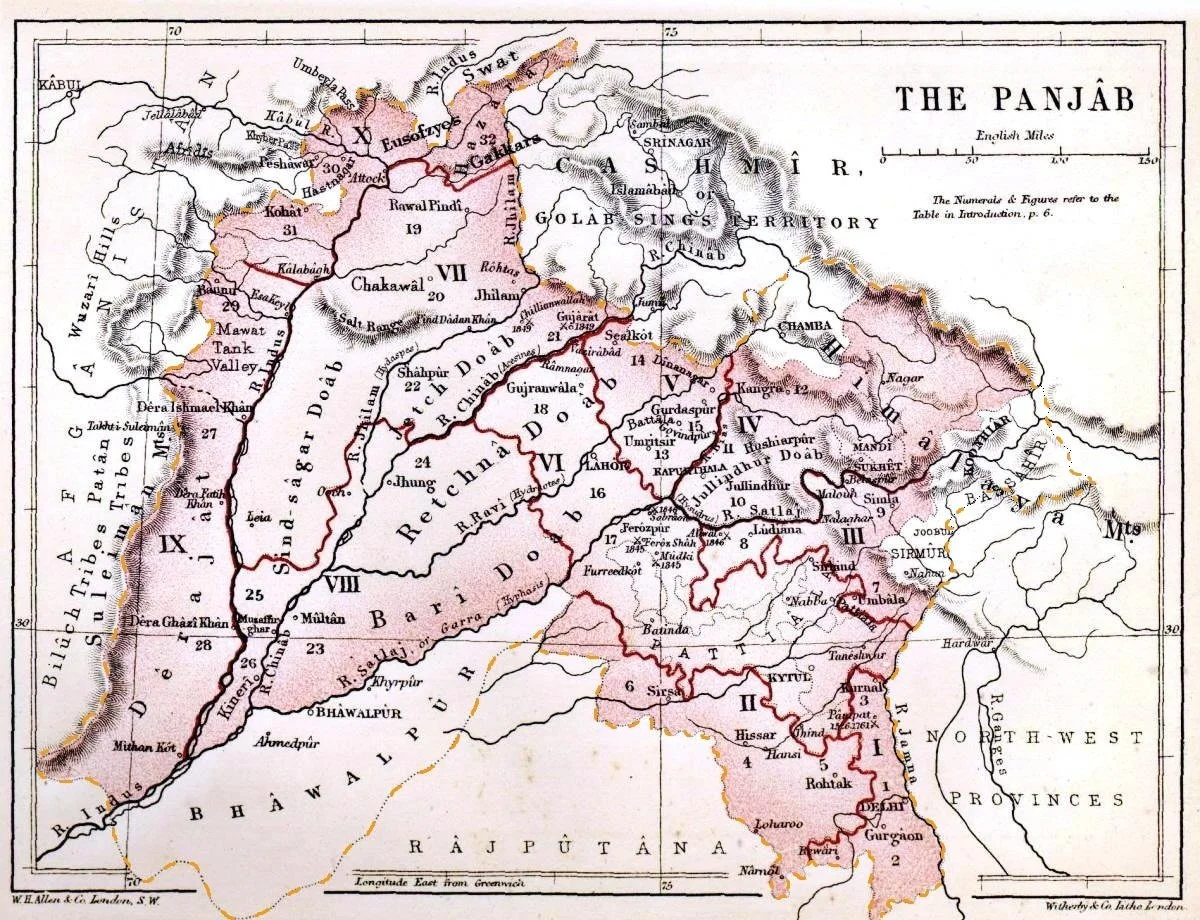Sikhs and other South Asians have been in British Columbia for over 100 years. They have played vital roles in the economic, social, and political history of this province. They came in search of opportunity and a better life, working in farming, fishing, and for the railways, but many first gained a foothold here by working in the lumber industry. Fraser Mills, Coquitlam, employed many of these men. Some eventually returned to India, some moved on to start their own successful companies, and some stayed in the area. Their families are still here today. They have served in the military, contributed to the province’s businesses and education, and were instrumental in creating a better society.
Image (left) credit: A group of North Pacific Lumber Company workers pose for the camera at Barnet Mill, early 1900s. Vancouver Public Library, Accession # 7641, public domain.
Why did they come?
By the turn of the century, the Punjabi peninsula had been part of the British Raj since 1858. This colonial power drew from the population for a large percentage of their military recruitment and put money into developing the region’s agriculture. Though the wealthy landowners did well, the wealth did not trickle down and many Sikh families struggled to make a decent living.
Some of the first Sikhs that came to Canada were soldiers on their way home from England after attending, by invitation, Queen Victoria’s Diamond Jubilee in 1897. They travelled across Canada on their way back to India and observed, first-hand, the terrain and the possible opportunities.
By 1904, forty-five South Asians had come to Canada and were followed by approximately 5000 more up until 1907. The majority of these came to British Columbia.
Then the door to Canada slammed shut, with very few immigrants allowed in until well after WWII. The reasons included racist reactions by both the government and the Caucasian population to exclude Sikhs and other ethnic groups from Canadian society. White labourers feared for their jobs and “foreign” workers were seen as the problem because they worked hard and for less money.
1880 map of the Punjab, around the time that it was divided into the British ruled canal colonies of Sidhnai, Sohag, Para, Chunian, Chenab, Jhelum, Lower Bari Doab, Upper Chenab, Upper Jhelum, and Nili Bar
Logging with oxen near Millside, Fraser Mills, circa 1889. City of Surrey Archives. F83-0-13-1-0-0-23.




